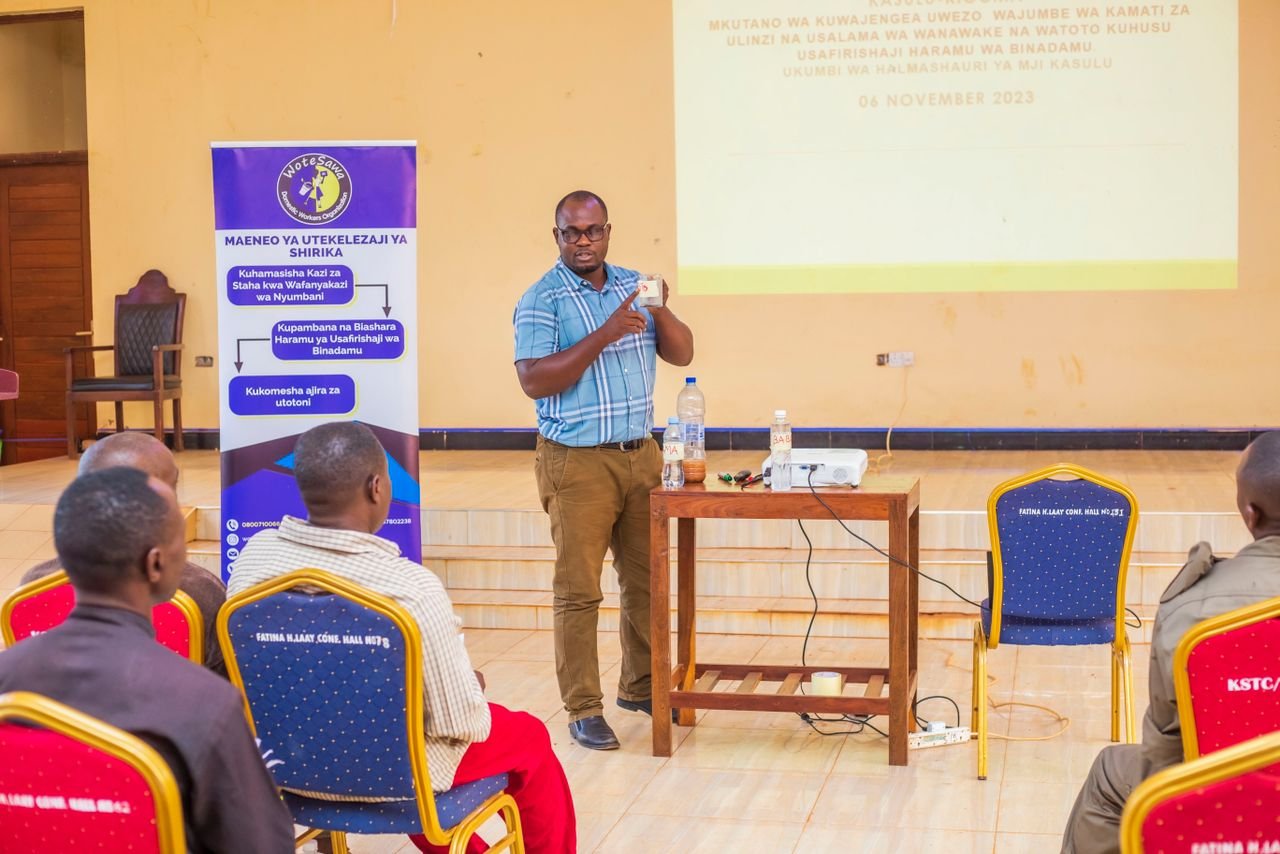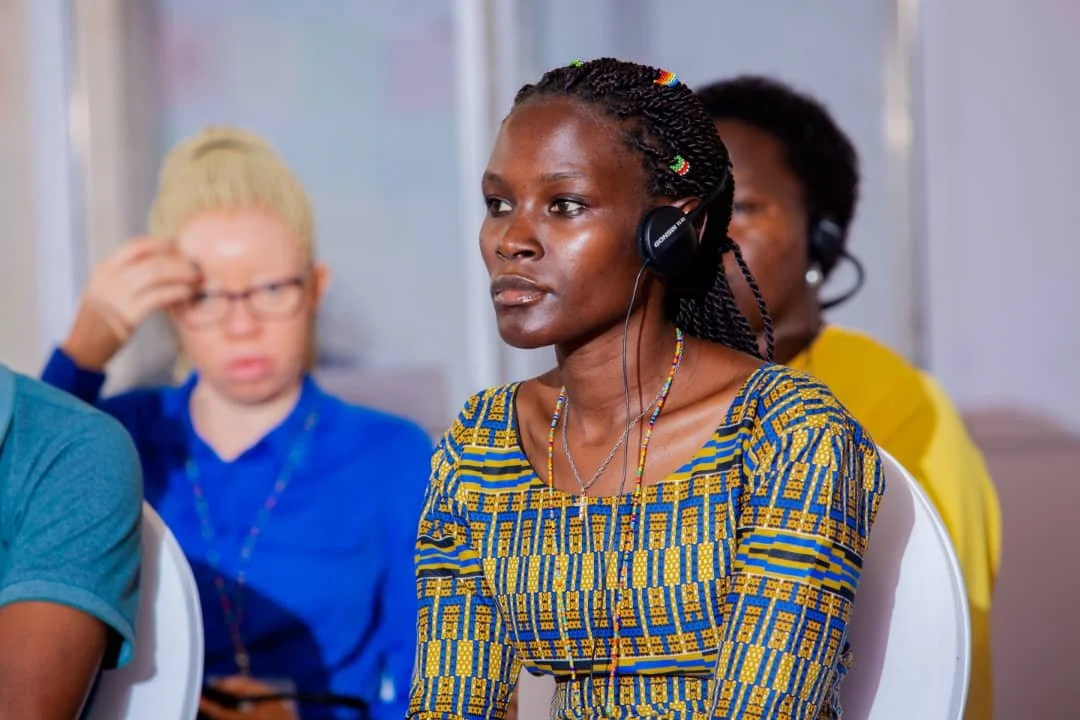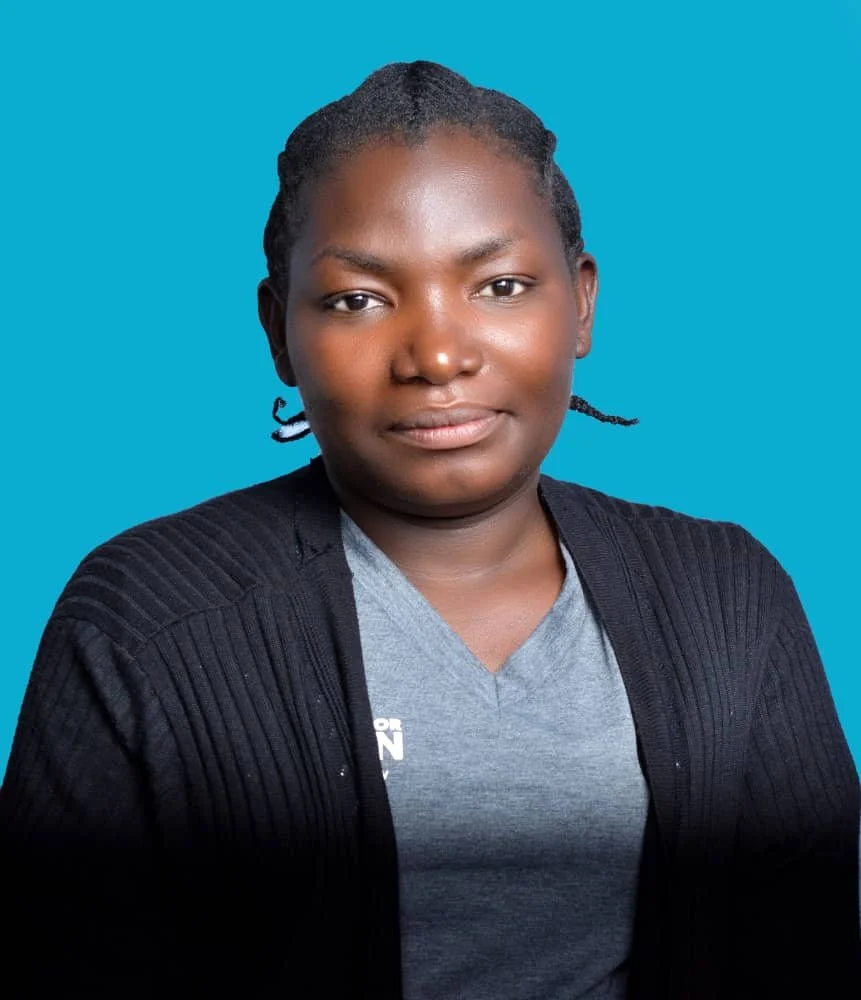
Our impact
WoteSawa works to significantly enhance the domestic work environment, ensuring productive employment and decent work conditions, alongside eliminating child labour and human trafficking in Tanzania.
10,110+
individuals educated on domestic workers’ rights and child protection
32
youth-led business established
26
wards adopted domestic worker protection laws
1,588
survivors provided with support services
178
children re-enrolled in schooling, preventing child labour
5000+
individuals engaged on gender-based violence & trafficking awareness

Testimonials
-

Deisa Elia
“I'm immensely grateful to WoteSawa for providing me with tailoring skills and the opportunity to design various types of clothing. They sponsored my studies at IFT College in Dar es Salaam, where I honed my abilities to create garments in different styles. Now, I am continuing to develop my talent at WoteSawa, designing unique clothes, Mama Africa handbags, and table mats. I see myself progressing towards my dreams and aspiring to achieve the success of renowned designers like Anna Collections and Zuu Collection.”
-

Neema Ishagoma
“I work as a domestic worker for a family of three (father, mother, and child) in Luchelele Ward. I never imagined I would do domestic work, but due to family conflicts and my father remarrying and neglecting us, I began working to help my mother. I learned about WoteSawa through friends of WoteSawa who were at my neighbourhood, they raised awareness about the organization's efforts to promote decent work for domestic workers. I attended seminars and joined economic empowerment groups supervised by WoteSawa. Now, I have moved beyond mere survival; I own a hairdressing salon alongside my domestic work. I feel capable of assisting others beyond my family and understand the importance of having a job contract. It provides protection and ensures that my basic rights are upheld”
-

Jenipher Nelson Kato
“Am a survivor of domestic servitude who overcame significant hardships to become a human rights activist and leader. As the firstborn in a family of nine, I grew up in extreme poverty, which pushed me to start making and selling charcoal at a young age to support my family. After primary school, I worked as a day labourer and later endured years of unpaid domestic work under harsh conditions after being deceived with false promises of vocational training. Eventually, I found support through WoteSawa Domestic Workers Group (by then), where I received life skills and education, and now serve as the Coordinator of Domestic Workers’ Advisory Committees. I am also one of the WoteSawa Domestic Workers Organization's founders, dedicated to advocating for domestic workers' rights and believing that anything is possible through hard work”


